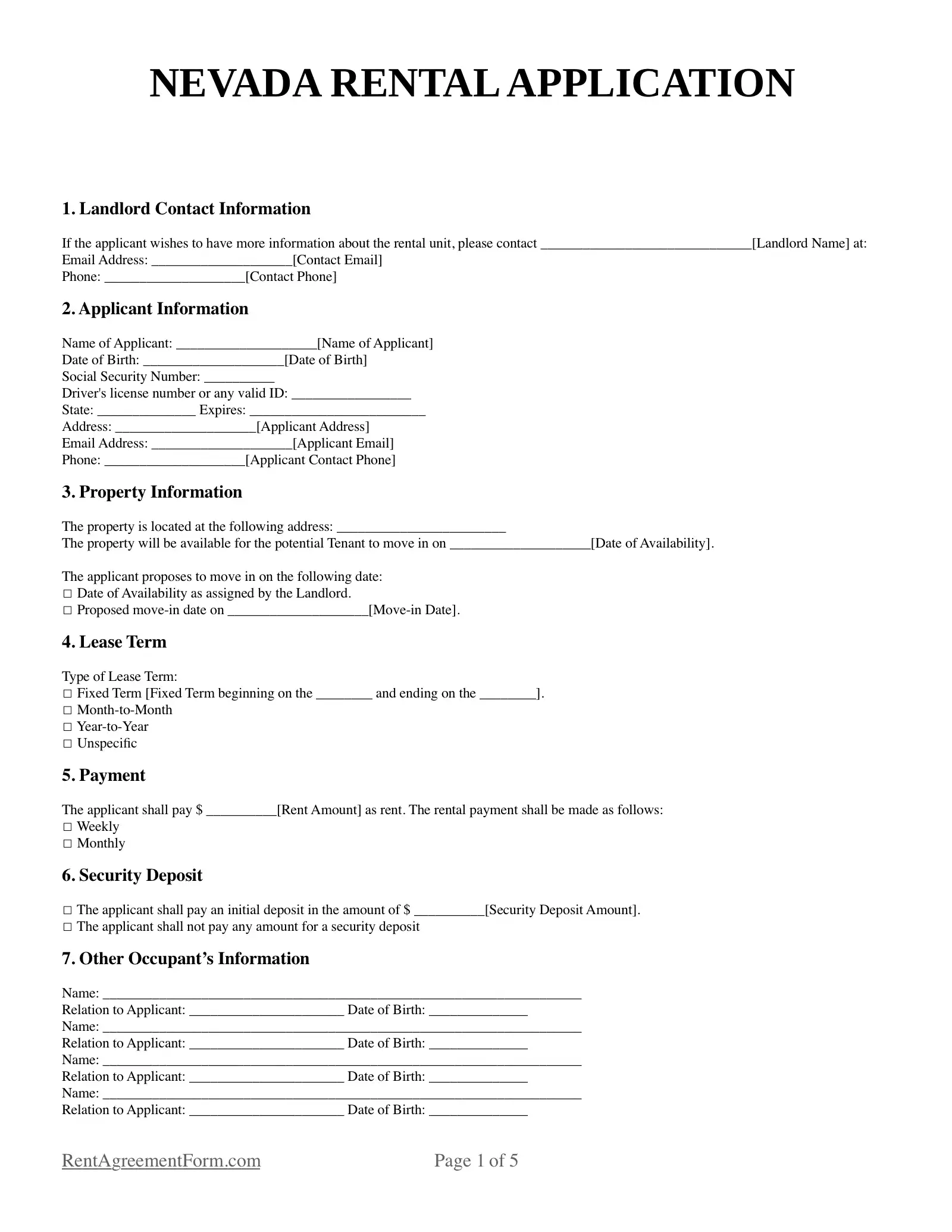Nevada Rental Application Form
A Nevada rental application form is the first step to renting a property in the Silver State. It is a document that a prospective tenant submits to a landlord signifying their interest in renting a specific property or apartment unit.
In many cases, the landlord will receive multiple rental applications. The goal is to choose the best tenant who can pay on time and won’t cause any problems for the landlord. To do that, the landlord must perform a background check. One of the more important parts of the background investigation is the eviction check. This check is important because a history of eviction is a bad sign that most landlords will want to avoid.
For multi-unit buildings, the investigation should also cover the criminal history of the applicant for the safety of the other residents.
The rental application form will also indicate the income and credit score of the applicant. A prospective tenant must not lie on the form. Such details are easily verified during the background check. The ultimate goal of the background check is to establish the tenant’s ability to remit monthly payments and to ensure that they can live peaceably with others without causing undue damage to the property.

Rental Application Fee in Nevada
No law dictates how much a Nevada landlord can collect as a rental application fee. The non-refundable fee is meant to cover associated fees for the background investigation which is usually done by a third party. A credit check, for example, is done by a firm. There may be times when the landlord will do the check on their own, but there are still attached administrative fees for processing.
The landlord must charge applicants a uniform rental application fee. Fairness is an important statute when it comes to housing. Case in point, a landlord cannot reject an application based on someone’s race, religion, and disability, among others, as stated in the Federal Fair Housing Act.
Nevada Security Deposits for Rental Applications
Under Nevada law, landlords can ask for a higher security deposit compared to other states. According to the Nevada Revised Statutes, a landlord can collect as much as three months’ worth of rent as a security deposit. Unlike the rental application fee, the security deposit must be refunded to the tenant at the end of the tenancy.
There are guidelines for the return of the security deposit. For one, the landlord has 30 days to return the money with or without deductions. The landlord can deduct the cost of repair if they find damage to the property and if there is unpaid rent (NRS 118A.242).